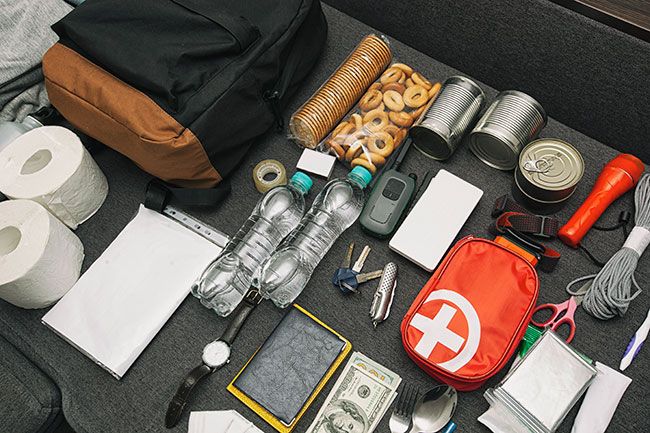Sandi Colvin: Be Prepared: It's not just a Scouting motto

Despite decades of being told our households need to make preparedness a priority, people are stubbornly hanging on to the fairy tales, “It can’t happen to us,” and, “The government will save us.”
It can happen. It does happen. It will happen, regardless of who you are and where you live. And the government will not be able to bail you out on its own.
This is a call to everyone reading this to take personal responsibility for getting by for days or weeks without resources. When the next disaster hits, it may very well be in our backyard. As a city and as a nation, we must be ready to rely on ourselves individually, not the government, to come to the rescue.
Begin by assembling a survival kit. Start small and build on your personal resources, adding what you can afford as you are able.
Find a safe place in your home or garage for a stash of water and a way to purify more.
By the way, water is the most important thing that people are going to need — a minimum of a gallon per person per day. It’s the one thing you can’t go without for more than three days.
In your kit, also include canned, dehydrated or freeze-dried food, a can opener, medications, a first aid kit, batteries, blankets or sleeping bags, pet food, flashlights, matches or lighters, and, if you have a barbecue, an extra tank of propane.
Here’s a tip: If you lose power, you can also throw sleeping bags over your freezer and refrigerator to help keep food useable longer.
It’s wise to keep a smaller kit in the trunk of your car in case you get caught away from home.
You should also make sure your car is fueled up most of the time. Personally, I never let my car get below half a tank.
Know where your natural gas lines are and how they can be turned off. Know your neighbors and who might need help in an emergency, if you’re in a position to lend a hand.
You should also have an emergency contact outside of your immediate area, preferably in another state, that you and your members of the family can check in with. Most phone lines will be down, but getting through to another area might be possible.
At the community level, you could consider getting certified in first aid and becoming a member of your home Community Emergency Response Team. You should also teach your children what preparedness looks like and develop a plan for meeting up in the event you become separated.
Every Christmas for years, I’ve purchased items for each of my grown kids to keep in their kits and made sure they understand how serious this is. They both get it.
Please don’t rely on your neighbors to help you and your family. They may not be prepared themselves, or they may have prepared only for themselves, so won’t have enough to share.
It’s pretty common to hear people joking about knowing a neighbor who’s prepared so figuring that’s where to go. Keep it a joke — seriously.
If they’re willing to help, great. If not, it’s their call. You’re the one who failed to heed all the warnings.
There are certainly disasters where all the planning in the world isn’t going to help. But personally, I’d rather err on the side of keeping myself and my family safe.
For more information, the American Red Cross has an excellent preparedness list you can use as a guide. It can be found by googling EmergencyPreparednessChecklist.pdf.
About the writer: A lifelong McMinnville resident, Sandi Colvin is enjoying retirement with her husband of 40 years, Mike, and their two rescue cats, Blue and MacKenzie. Their two human children are happily making their way in the world on their own now. Her hobbies include hiking, herbalism, quilting and thanking God every morning she wakes up on the right side of the dirt.








Comments